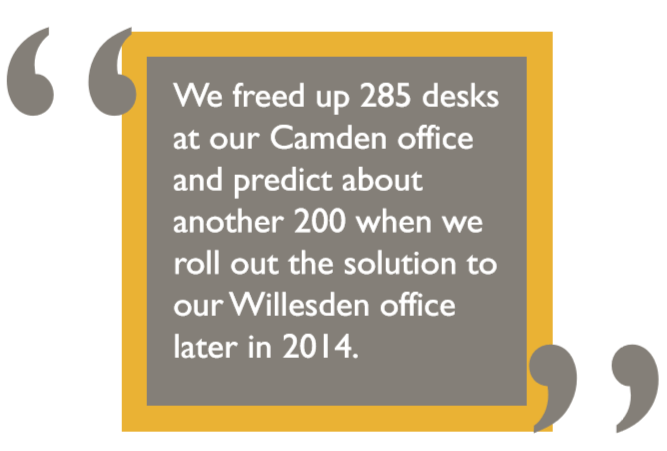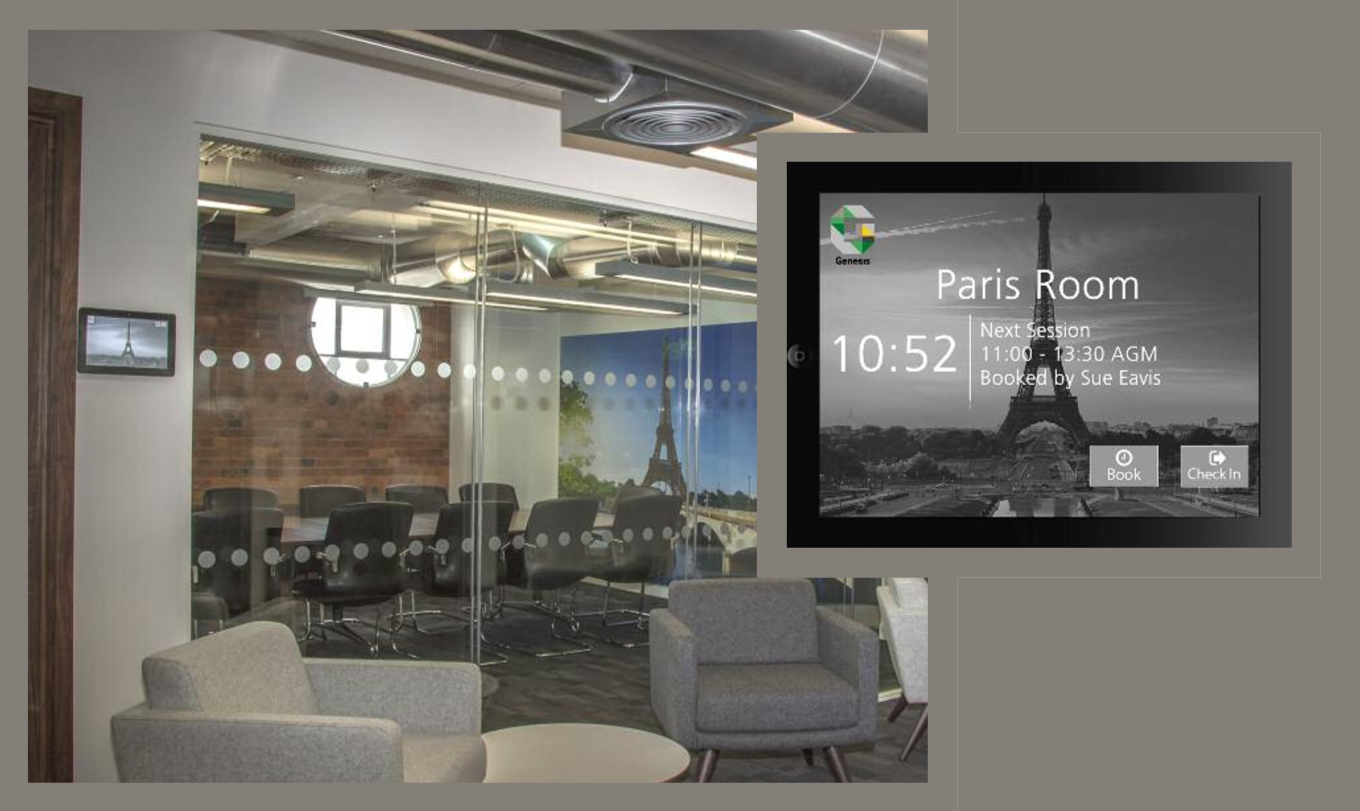Case Study for ResourceXpress
In 2014, Genesis Housing Association embarked upon a project to relocate to a new flagship office in Camden, London.
The move formed part of a 2-year change programme in which senior management envisioned a more efficient, more versatile workplace. This decision reflected the fact a lot of workers were actually out of the main office, engaging face-to-face with clients or arranging meetings in small hub offices.
Jenny Quigley and Will Norton, the Project Managers tasked with overseeing this massive cultural change, first set about researching various departments to build a picture of requirements for flexible workspaces going forward.
They quickly discovered that almost every department was unique and that one size would certainly not fit all: Due to cash transactions, the Finance team could not work remotely and needed fixed desk space. Other departments however, more easily lent themselves to the prospect of hot-desking.



Sometime previously, Genesis had migrated from Google Enterprise Mail to Microsoft Office 365 and were very keen to make use of a resource booking system that would leverage their new cloud infrastructure and build on familiar processes using Outlook calendaring. Furthermore, the new solution and overarching cultural change needed to be implemented as the de facto standard across the whole organisation, including outlying offices.
Genesis approached several companies to enquire into resource management solutions for hot-desks and meeting rooms, one of which was Essential Computing.
Essential’s solution comprised Resource CentralTMa one-stop system for booking rooms, hot-desks and many other resources, such as catering or audio/visual services, in advance. A further part of the solution, ResourceXpressTM, provided touch screens to support on-thespot booking of meeting rooms and hot-desks. Both parts of the solution were designed to build on Microsoft Exchange and Office 365.
The Benefits
The implementation of mobile and flexible working initiatives has provided the following benefits:
Advanced Flexibility & Control
In total, Genesis will implement booking systems for 26 meeting rooms and plans to roll out 430 hot-desks.
Staff are now able to book rooms and desks in advance using their standard Outlook calendar appointment system, and use touch screens to make ad-hoc bookings ‘on the day’.
Two types of touch screen are in use:
- Individual panels outside main meeting rooms, which show current meeting information, and enable instant booking if a room is free.
- Larger “kiosk” screens installed in reception areas, which enable booking of hot desks and meeting rooms from a floor-plan which reflects the layout of the building, with red and green “hot-spots” which indicate which resources are free and which are in use. Staff can also locate colleagues by searching information about booked resources.
The Selection Process
According to Andy Knight, the Essential consultant for the project,
“We worked closely with Genesis to ensure their room panels and kiosks were pleasing to the eye, easy to navigate and that they reflected their new cutting-edge office design and colours. We also provided an induction service to help staff as they arrived on the first day following implementation. This attention to detail means staff can quickly get to grips with using flexible working spaces and eases the change organisations are looking to bring about.”
Genesis has indeed been pleased with the impact this technology has had with staff. Facilities Managers also get a much clearer view of how various resources are being used and can act accordingly.
For example, not heating a room if it doesn’t have a booking, or working out how space might be usedin a more effective and economical manner to further reduce carbon footprint.
Implementation Hurdles
As with all worthwhile endeavours, there were some hurdles to jump.
According to Quigley,
“In retrospect, the cultural change aspect of the project would have benefitted from some external mediation.
Staff were taken aback when we told them they wouldn’t have fixed desks anymore, even though we were trying to provide more flexible facilities. Some even had to speak with management before they got on board with our proposals.
Our CEO’s support was vital in getting all our changes through.
Another challenge was that the project did not have a dedicated IT resource allocated to it at the outset which led to a misunderstanding about the pre-requisites to meet our needs in an Office 365 environment.
Thankfully, any subsequent rollout problems were averted by our IT department, who were able to modify our email client implementation plans.
It’s a lesson to anyone working on such projects to ensure that all interested parties are fully engaged from day one.”
Essential has also used this experience to better inform their technical information gathering process in the early stages of resource management projects.
Implementation Hurdles
Concluded Quigley,
“We freed up 285 desks at our Camden office and predict about another 200 when we roll out the solution to our Willesden office later in 2014.
We have achieved what we wanted to on paper but are still committed to delivering real cultural change for our staff. We feel this will only be complete once we have re-worked all our old processes and re-trained staff where necessary.
Good planning and communication with staff for mass adoption is key in this sort of project.
A good partner is also vital and having Andy on-site on a regular basis meant the roll out went smoothly, even when we had a few technical hiccups.
I would challenge any organisation that says hot-desking wouldn’t work for them!”
